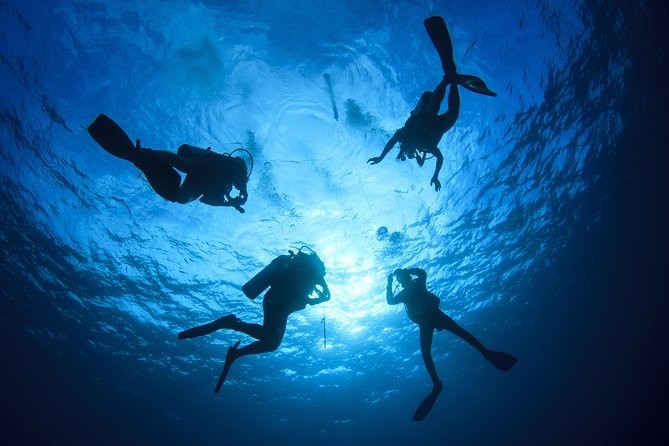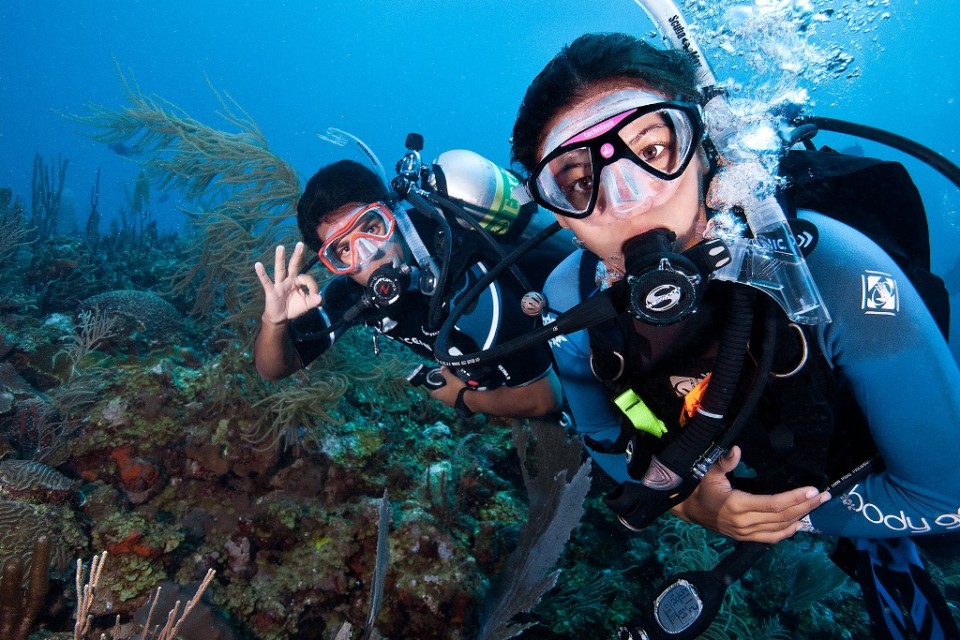Diving Sites in Port Blair







If you want to join the best of the best in the diving community, then the PADI Master Scuba Diver (MSD) program is just for you After completing this course, you will become a part of the elite group of respected scuba divers. This will require both significant experiences as well as scuba training. Having significant experience in underwater environments, master scuba divers undergo intense dive training. As a recreational diver, this is the highest certification you can reach. It also shows your long-term commitment to and passion for scuba diving.
A part of the continuing diving education, the Master Scuba Diver program brings out the best of the best in recreational scuba diving. This rating will let you join the elite group as less than 2 percent of divers ever achieve this level. Your Master Scuba Diver card will be proof of your time underwater in a variety of environments and exciting dive adventures.
Factors Affecting Scuba Diving
Various factors that influence the perfect diving experience are as follows:
- Safety
- Weather
- Water depth
- Water current
- Fish population
- Clarity of water
- Population of corals
Keeping all these things in mind while picking up a place for your dive can be a little bit tough. But don’t worry, we present here the list of best places for scuba diving in the Andaman Islands:
- Havelock Island (the most sought-after)
- North Bay Island
- Neil Island
- Port Blair
Things to Carry for Scuba Diving
- Towel
- Water bottle
- Extra set of clothes
- Personal medicine kit, if needed
With the PADI Master Scuba Diver course, you will reach the top of this exciting water sport and the best in recreational diving. This rating reflects your elite achievement, proficiency in diving skills, expertise, as well as underwater activities. To earn this certification, you must log a minimum of 50 dives, complete the PADI Rescue Diver course, and choose 5 speciality courses. Completing this diving course comprises expert training, different activities, and intense education. But still, the entire process will be supremely fun-filled and adventurous. Our expert knowledgeable staff will assist you in every step in your journey to reach the highest non-professional level in the PADI system of diver education.
Become a Certified Scuba Diver – Join Our Course Today!
If you are at least 12 years old and are interested in learning deeply about scuba diving, then you should aim for Master Scuba Diver. To reach this level, you have to start your diving journey by earning a PADI Open Water Diver certification, followed by PADI Advanced Open Water Diver and PADI Rescue Diver (or qualifying certifications). Along with that, you must also earn 5 PADI Specialty Diver certifications and have logged at least 50 dives.
Medical Requirements
A minimum level of health and fitness is required for scuba diving. In case you are suffering from any chronic health condition, or taking certain medications and/or had surgery recently, you will have to get written approval from a physician before diving.
PADI Master Scuba Diver: A Recognition Rating
A Master Scuba Diver has significant experience and dive training. They have spent a lot of time in different kinds of underwater environments and thus, have their share of dive adventures. Whether it’s night diving or deep diving, they have done it all. After completing this diving course, you will be a part of an elite group as less than 2 per cent of divers ever achieve this rating.
That’s why this certification is known as the black belt of scuba diving. Pursuing the PADI Master Scuba Diver helps you in many other ways also. It teaches them new skills, builds confidence, promotes the conservation of oceans, and last but not the least, motivates them to take care of their physical and mental wellbeing.
After achieving your MSD rating, your confidence as a scuba diver will take a turn for the better. From a complacent diver, you will turn into a more confident person both above and under the water. Isn’t that awesome!
What it takes to Become a PADI Master Scuba Diver
- One should be at least twelve years old (12-14-year-olds earn Junior MSD)
- PADI (Junior) Advanced Open Water Diver certified
- PADI (Junior) Rescue Diver certified
- Earned five PADI Specialty Diver Certifications
- Have logged a minimum of fifty dives
- Complete application
Please note that the PADI Master Scuba Divers aren’t professionals and this rating doesn’t qualify a diver to work in the scuba diving industry. A recreational level, it shows the top skill levels of those who are not inside the industry. You will be required to become a PADI Divemaster if you want to be a professional diver in the future. In short, PADI MSD is the top level when it comes to recreational diving.
Best Diving Sites in the Andamans
Some of the top locations for scuba diving in the Andaman Islands are as follows:
- Red Pillar- A shallow reef that is part of the continuous fringing reef running along the north-eastern coast of Havelock Island
- Lighthouse - If you want to witness the perfect balance of vibrant fish and soft & hard corals, then this is your one-stop destination.
- Tribe Gate - A small submerged hill surrounded by a bed of sand on all sides
- Nemo Reef - A shore entry site having shallow water that opens into a swimming pool-like setup. It has white sand and a baby reef.
If you want to become a licensed or professional diver, then you will be happy to know that the Andaman Islands offer different certifications and licenses from certified schools. You can dive at basic dive sites around the world once you get the diving card.
We know that ticking off scuba diving from your bucket list is long due, and Havelock Island is the best place in Andaman to do it. Our 5-star PADI facility will take care of all your requirements to ensure that you have a wonderful dive. Contact Dive Andaman to begin your journey toward becoming a PADI Master Scuba Diver and keep exploring the oceans around the world.
Frequently Asked Questions
-
Q. 1 : What is PADI Master Scuba Diver course?
Answer: The PADI Master Scuba Diver Course is the highest non-professional level certification offered by the Professional Association of Diving Instructors (PADI). The course aims to develop the diver's knowledge, skills, and confidence to an expert level and is considered a significant achievement in the diving community. Upon completion, divers are recognised as some of the most skilled and knowledgeable divers in the world.
-
Q. 2 : What makes you eligible for the PADI Master Scuba Diver course?
Answer: To be eligible for the course, you must be a certified PADI Advanced Open Water Diver and PADI Rescue Diver, have logged a minimum of 50 dives, and have earned at least five PADI Specialty Diver certifications. The specialities can include Deep Diver, Enriched Air Diver, Wreck Diver, Night Diver, Search and Recovery Diver, and others. The course aims to further develop the diver's knowledge, skills, and experience, making them highly skilled and knowledgeable in various diving environments. The minimum age requirement for the PADI Master Scuba Diver Course is 15 years.
-
Q. 3 : What are the PADI speciality courses required for the PADI Master Scuba Diver course?
Answer: The PADI master scuba diver course requires the completion of five PADI speciality courses. These courses can be chosen based on your interests and goals. Some popular options include deep diving, wreck diving, nitrox diving, underwater photography, and underwater navigation.
-
Q. 4 : How long does it take to complete the PADI Master Scuba Diver course?
Answer: The duration of a PADI master scuba diver course can vary depending on your pace and schedule. However, it typically takes 6-12 months to complete, as it involves a significant amount of training and experience in different diving specialities.
To qualify for the master diver rating, a diver must have completed at least 50 logged dives and have certifications in several diving specialities, such as deep diving, underwater navigation, and night diving. The time it takes to complete each speciality course can vary from a few days to several weeks, depending on the intensity and frequency of the training.
-
Q. 5 : What are the benefits of becoming a PADI Master Scuba Diver?
Answer: Becoming a PADI master scuba diver is a significant achievement that recognises a diver’s commitment to mastering their skills and knowledge in the sport. The course provides advanced training in various diving areas, including deep diving, underwater navigation, and search and recovery, as well as elective specialities. Master scuba divers are experienced and skilled divers who can undertake challenging dives with confidence and safety. The certification will also open up new opportunities for you as a diver, such as pursuing a career in diving or volunteering in marine conservation projects.
-
Q. 6 : What is the structure of the PADI Master Scuba Diver course?
Answer: The master scuba diver course is designed to enhance a diver's skills and knowledge through advanced training in various diving areas. The course consists of core and elective speciality dives, with a minimum requirement of 50 logged dives. The core dives include deep diving, underwater navigation, and search and recovery, while the elective specialities can be chosen based on the diver's interests and goals, such as wreck diving or underwater photography. The course includes both classroom and practical training, with instructors providing guidance and feedback to help divers improve their techniques. Upon completion of the course, divers earn the prestigious PADI Master Scuba Diver certification, the highest non-professional level in the PADI system.
Diving Sites in Port Blair
Diving Sites in Havelock Island
Diving Sites in Neil Island
Talk to our Scuba Diving Expert
X